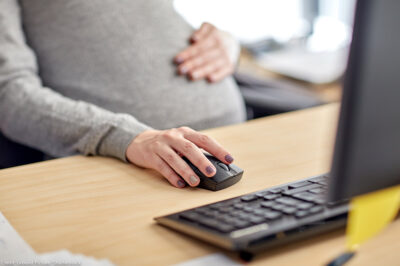In Legal First, NJ Supreme Court to Consider Law Denying Aid to Children of Families on Welfare
FOR IMMEDIATE RELEASE
TRENTON — The American Civil Liberties Union will tomorrow urge the New Jersey Supreme Court to reject a state law that denies welfare benefits to children born into families already receiving welfare.
The argument marks the first time a state high court anywhere in the nation will be asked to decide whether the so-called “Child Exclusion” law, also known as the “family cap,” violates state constitutional protections.
“The Child Exclusion law unfairly punishes innocent children simply because their mothers chose to exercise their constitutional right to have a child while receiving state assistance,” said Lenora Lapidus, Director of the ACLU’s Women’s Rights Project, who will argue the case before New Jersey’s highest court.
The class action lawsuit, Sojourner A. v. New Jersey Department of Human Services, is the culmination of efforts by the ACLU, the NOW Legal Defense and Education Fund, and the private law firm of Gibbons, Del Deo, Dolan, Griffinger & Vecchione to overturn New Jersey’s Child Exclusion policy.
The ACLU will argue that the law imposes severe financial penalties on poor women and their children in an effort to coerce poor women’s decisions about whether and when to have children, in violation of the New Jersey constitutional guarantees of privacy and equal protection.
Evidence in the case shows that the law has caused many poor women to seek abortions. A study conducted by Rutgers University found that in the first four years after the law was enacted, there were 14,000 fewer births — and 1,400 more abortions — among women receiving welfare in New Jersey than would have occurred in the absence of the Child Exclusion law.
According to the ACLU’s brief, New Jersey’s Child Exclusion law has failed to lead women to leave welfare for work; instead it punishes women for making certain reproductive choices and has only served to make poor children poorer.
The experiences of the named clients in the case, Angela B. and Sojourner A. (who remain anonymous to protect their privacy), vividly demonstrate the hardships caused by these policies. Angela B. is the mother of four children, two of whom were born while she was receiving welfare assistance and who are therefore excluded from New Jersey’s welfare program, known as “Work First.” Because her two youngest daughters do not receive welfare benefits, the family consistently runs out of food before the end of the month and must rely on food pantries and other charitable sources to eat.
Sojourner A. is the mother of two children, one of whom does not receive welfare benefits because he was born while the family was receiving assistance. Because of her experience trying to raise two children with benefits meant to support only one, Sojourner A. had an abortion when she became pregnant again while still receiving assistance.
The families affected by these punitive polices also have unstable housing and are often forced to live in shelters, with relatives, and with friends, and constantly worry about being homeless, the ACLU said in legal papers.
“Family cap policies are nothing but cruel, ill conceived and ineffectual,” said Sherry Liewant, a staff attorney with the NOW Legal Defense & Education Fund.
Under the federal welfare reform law passed in 1996, states have the option of denying welfare benefits to any child born into a family already receiving welfare. At least 20 states have already exercised this option; New Jersey enacted it as part of its “Work First” welfare program.
Advocates for women and the poor consider New Jersey a bellwether for many state constitutional issues and are hopeful that a favorable decision will spur change in other states with child exclusion laws. The state’s strong constitutional protections have led the New Jersey Supreme Court to strike down laws denying poor women Medicaid funds for abortions and requiring parental notice for teens seeking abortions.
A friend-of-the-court brief has been filed in support of the plaintiffs in this case by the Center for Economic and Social Rights, the International Women’s Human Rights Law Clinic and the Center for Constitutional Rights.
The ACLU’s opening brief in the case is online at /node/35094 and its reply to the government’s brief is online at /node/35095
The friend-of-the-court brief is online at /node/35093
Stay Informed
Every month, you'll receive regular roundups of the most important civil rights and civil liberties developments. Remember: a well-informed citizenry is the best defense against tyranny.


